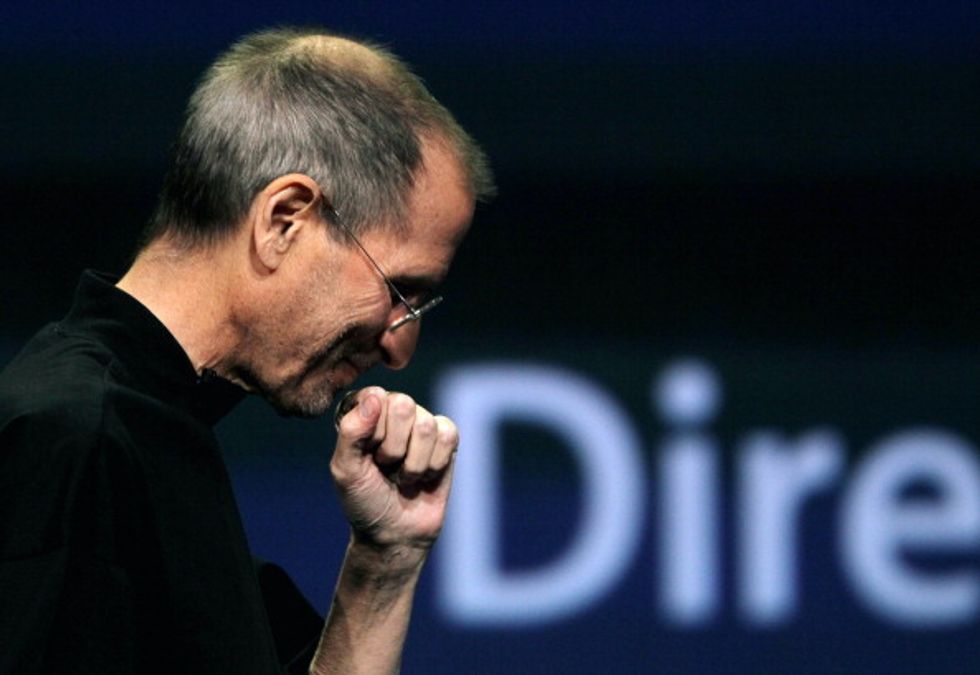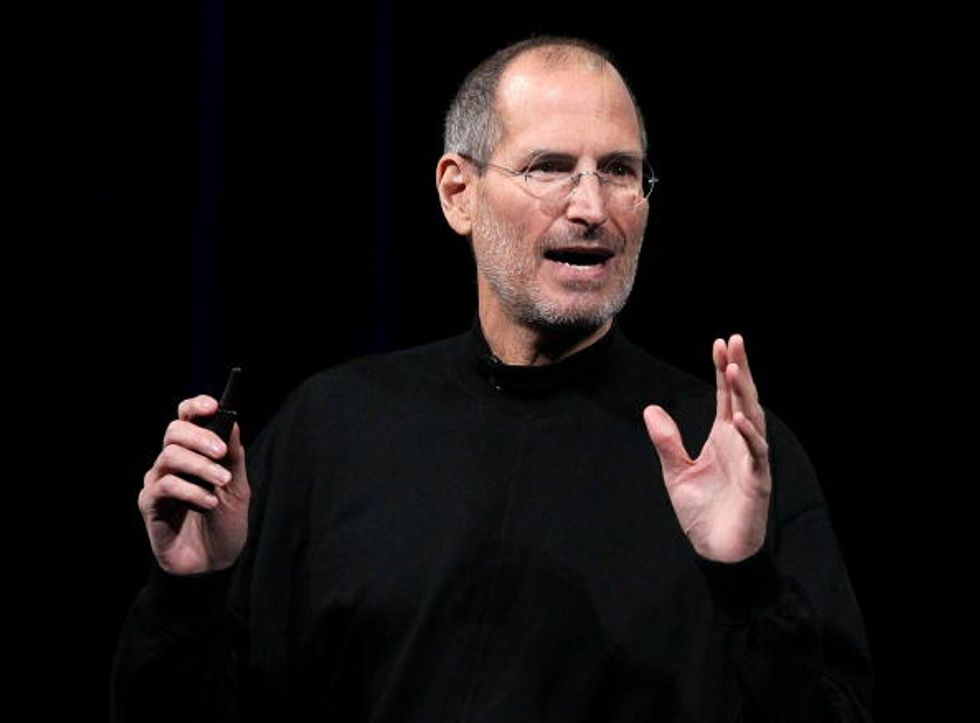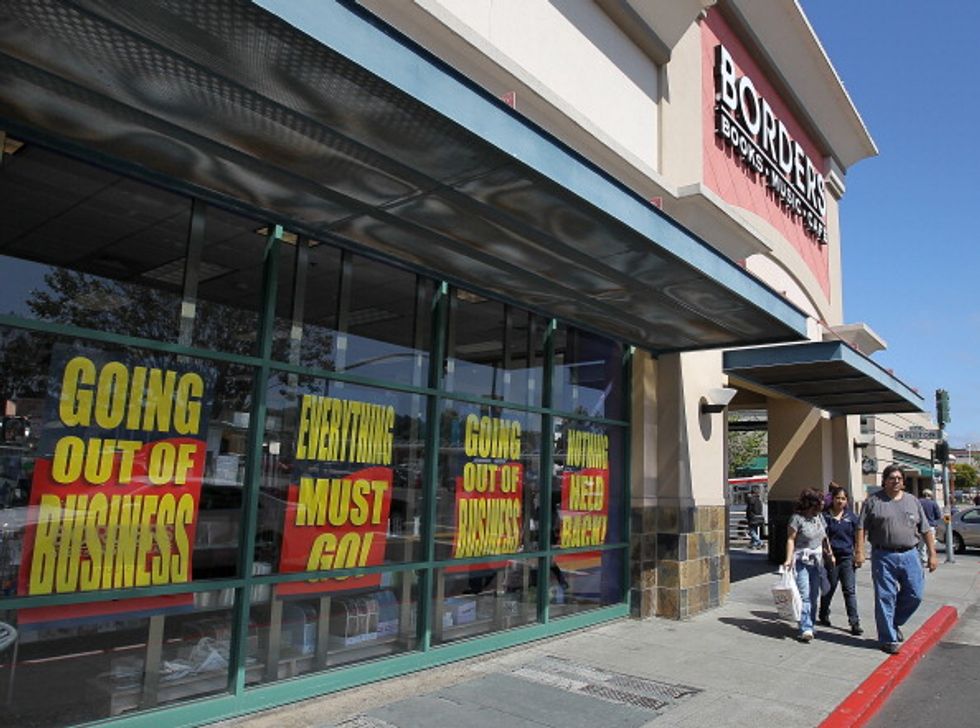
(Justin Sullivan/Getty Images)

Two decades ago, former Apple CEO Steve Jobs gave a presentation in which he announced several predictions for the future. And he was spot on.
When Jobs delivered the presentation in 1996, Google was still a research startup at Stanford University, the most sophisticated PC operating system was Windows 95 and Amazon was just getting its start selling books.

That same year, Jobs was interviewed by Wired magazine and offered farsighted observations, such as, “The desktop market has entered the dark ages, and it's going to be in the dark ages for the next 10 years, or certainly for the rest of this decade,” and “The Web is not going to change the world, certainly not in the next 10 years. It's going to augment the world.”
At the time, Jobs had yet to return to Apple. And though his later projects at Apple certainly contributed to the fulfillment of his predictions, it’s fascinating to see all that the tech mogul got correct.
"There will be Web dial tone everywhere. And anything that's ubiquitous gets interesting,” Jobs told Wired.
Jobs predicted 20 years ago that the Internet would expand the possibilities for communication and innovation and called the Web a “leveling of hierarchy.”
 Amazon warehouse in Phoenix, Arizona. ( AP)
Amazon warehouse in Phoenix, Arizona. ( AP)
When asked about the demographic that would benefit most from the expansion of the Internet, Jobs answered that it would be people who have something to sell: "It's commerce. People are going to stop going to a lot of stores. And they're going to buy stuff over the Web!”
In those days Amazon was still a small book-focused startup. But the company’s founder, Jeff Bezos, was paying attention, and 20 years later, Amazon achieved $105 billion in net sales in 2015.
Jobs noted, however, that there was plenty of hard work ahead for e-commerce. He predicted in the interview that widespread e-commerce was still "about two years away,” but it was “going to be huge.”
“The Web's not going to capture everybody,” he noted, adding that if e-commerce could one day account for 10 percent of the goods and services in the country, it would be “phenomenal.”
E-commerce sales currently account for 7.5 percent of retail sales, but Jobs predicted that “eventually, it will become a huge part of the economy.”
Jobs also foresaw that the Internet would serve as an important tool for bypassing the middleman, a major achievement of tech startups in the past two decades.
At the time, he noted that there were “a lot of middlepersons” in society who had a tendency to “slow things down, muck things up and make things more expensive.” He said the elimination of middlemen would be “profound.”
Jobs also warned that "large companies not paying attention to change will get hurt."

This seems to be true for many bookstores, print media publications and record companies that did not heed the warning fast enough.
"People are starting to do complex publishing on the Web – very simple forms of it,” he noted. “This will absolutely explode in the next 12 to 18 months."
Another spot-on prediction Jobs made addressed the auto industry. He predicted a business model for car vendors like the one currently employed by Tesla dealerships (minus the “laserdiscs”):
Take auto dealerships. So much money is spent on inventory — billions and billions of dollars. Inventory is not a good thing. Inventory ties up a ton of cash, it's open to vandalism, it becomes obsolete. It takes a tremendous amount of time to manage. And, usually, the car you want, in the color you want, isn't there anyway, so they've got to horse-trade around. Wouldn't it be nice to get rid of all that inventory? Just have one white car to drive and maybe a laserdisc so you can look at the other colors. Then you order your car and you get it in a week.
Perhaps the most insightful observation Jobs made in 1996 was that people were already suffering from "information overload" and that ”most people get far more information than they can assimilate anyway."
This could not be truer 20 years later in the age of Twitter, Instagram, Tumblr and various other forms of media.
Jobs died in 2011 after a seven-year battle with pancreatic cancer.
(H/T: Business Insider)